Baga Chipz, Sum Ting Wong and Derrick Barry weigh in on the DragCon UK ‘pandemonium’
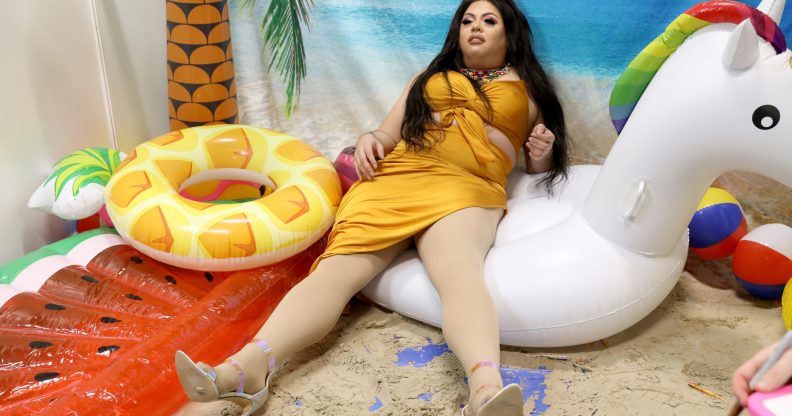
Sum Ting Wong cleverly brought an inflatable to her beach themed booth.(Tristan Fewings/Getty for World Of Wonder Productions)
At DragCon UK, PinkNews spoke to Sum Ting Wong, Baga Chipz, Gothy Kendoll, Derrick Barry, Laila McQueen and Jodie Harsh about the queues, the fans, and how they were left running on “pure adrenaline” by the end of the day.
Being a drag queen looks exhausting.
As you walk around RuPaul’s DragCon UK – a throbbing, frantic fever dream of queer art, performance and sweet, sweet capitalism – you notice, every now and then, a queen dropping her gaze or squirming in her heeled boots.
A closer inspection reveals that underneath the wigs, corsets and contouring are tired bodies, sore feet, and eyes that sting after hours spent under heavy, Instagram-ready lighting.
“It’s been crazy, non-stop,” Sum Ting Wong tells us.
“I’ve had half a sandwich and it think I’m just running on pure adrenaline.”
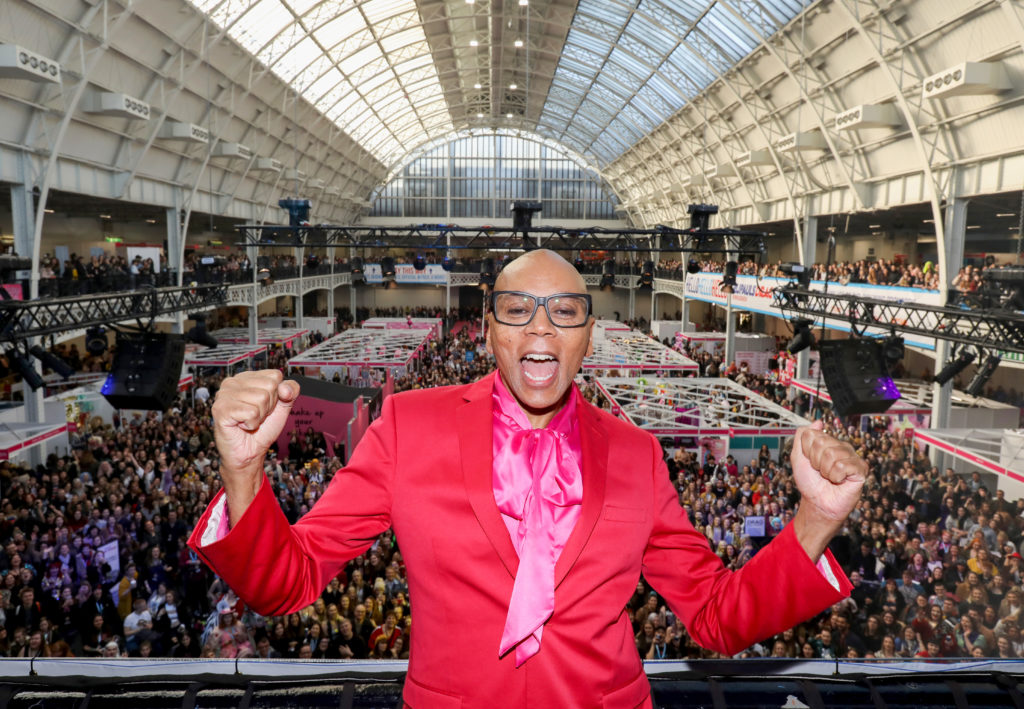
RuPaul declined to get up close and personal with his many, many fans, instead DJing from above the main stage. (Tristan Fewings/Getty for World Of Wonder Productions)
It’s a stark contrast to the way you usually see drag queens. On stage and screen these seven foot tall goddesses seem to possess infinite stores of energy (discounting Pearl, of course). But in reality, it’s bloody hard work.
“I feel like I’ve been starring at the sun all day,” says Laila McQueen. “My highlight of the day was when I got to sit down,” jokes Jodie Harsh.
Despite the physical demands you can tell that the queens are genuinely thrilled to be here, mingling with thousands of excited fans.
“If yesterday you’d told me there would be 200 people in a line to see me at a meet and greet, I’d tell you you were a liar,” Sum Ting Wong laughs, reclining on an inflatable unicorn float.
“And even though I was on Drag Race it’s still one of my favourite TV shows, so seeing all of the queens here is really cool.”
The excitement in the 10,000 capacity Olympia is palpable, and somewhat frenzied. There are hundred-deep queues for some of the more established queens and even longer lines at the front doors, where many ticket-holders find themselves waiting for hours to be let in.
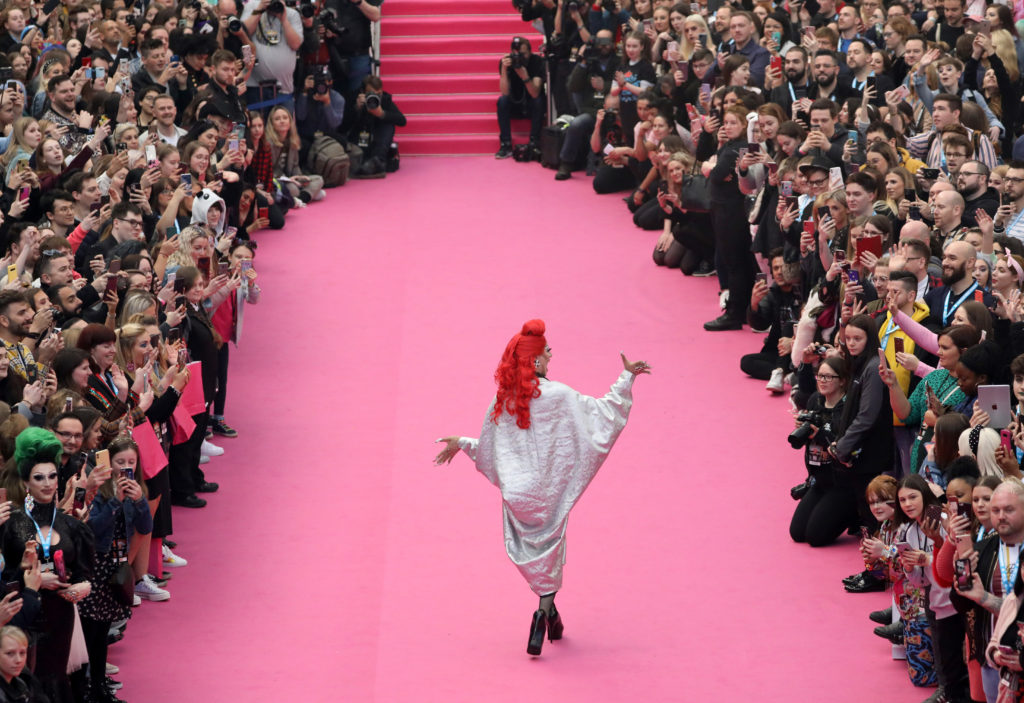
Divina De Campo was among the most popular queens. (Tristan Fewings/Getty for World Of Wonder Productions)
“It’s absolute pandemonium,” laughs Baga Chipz, joking that she feels like “the most famous woman in Britain – the new Diana.”
Derrick Barry, an old hat at DragCon having attended the LA and New York editions, assures us that we’d seen nothing yet, and that the British fans were, as the saying goes, keeping calm and carrying on.
“The British fans are a lot more calm, more shy and reserved than the American fans,” she says.
“My favourite thing is everyone asking me, ‘are you alright?’ I love that because I feel like everyone’s checking in on me.”
Many of the British queens, here as Drag Race alumni for the for time, are still amazed that the BBC agreed commissioned the show in the first place.
The Vivienne thanked the network for “taking a chance” on the show in between songs on the main stage (‘Sweet Transvestite’ and Cher’s ‘Walking In Memphis’), and admitted what many worried before the show aired: “It could’ve been s**t!”
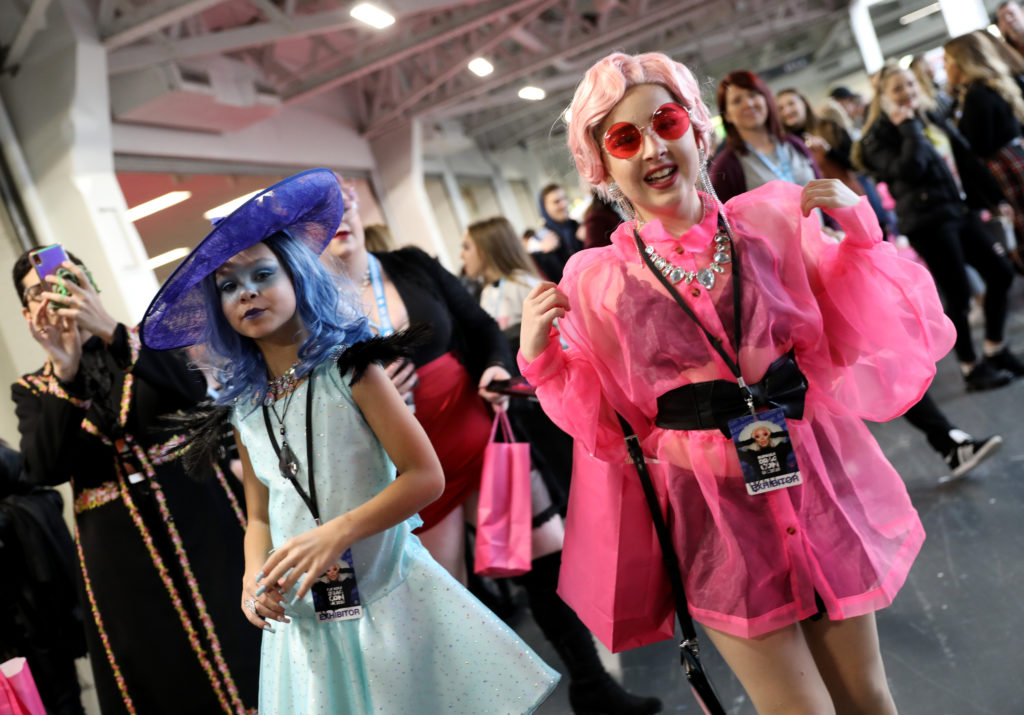
Young fans, many in drag, turned out in hordes. (Tristan Fewings/Getty for World Of Wonder Productions)
For Gothy Kendoll, “the emotional response” from the young fans who flocked to her stall for selfies and signed prints is still overwhelming.
“You realise that what you’re doing is of actual value, and that makes everything worthwhile,” she explains.
Of course, drag – and certainly Drag Race – isn’t just about making people feel good. It’s also a serious commercial enterprise, with DragCon a bankable event for many.
Laila McQueen – herself weary after a day of staring into a ring-light (the queens take no risks when it comes to having their pictures taken) – admits it’s “a nice way of making some extra cash”.
“But it’s also fun to interact with people,” she adds. “It’s more personal than just selling t-shirts on the internet.”
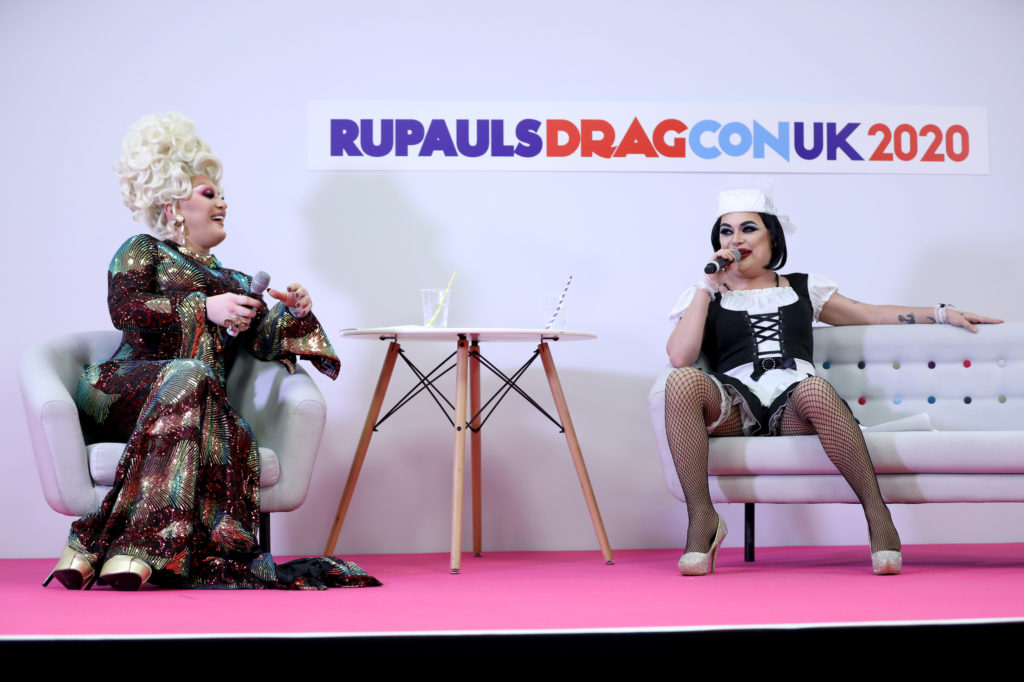
The Vivienne and Baga Chipz took a breather on stage. (Tristan Fewings/Getty for World Of Wonder Productions)
The two-day DragCon UK is also a prime opportunity for queens who usually live outside of the Drag Race ecosystem, including the Family Gorgeous, Virgin Xtravaganzah, Donna Trump and Baby Lame.
Jodie Harsh, who before Drag Race UK was probably Britain’s busiest working drag queen, says that the show’s arrival here had “given the drag scene in Britain a massive magnifying glass.”
“Fifteen years ago there were barely any gay people on TV, and if they were it was in an explosive way,” she continues.
“Now it’s a queer art form being celebrated on the BBC. It’s moving queer culture along and giving it a huge public platform, it’s incredible and important and amazing. What’s not to love about that?”

